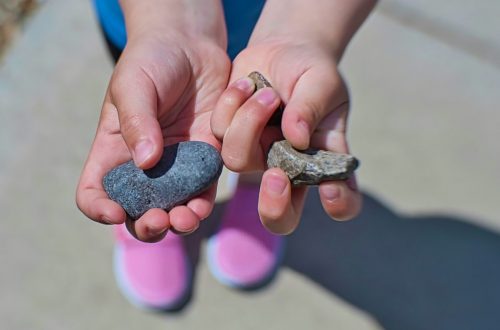I thought I understood idleness. I imagined it as a gentle, comforting space—stretching out on a sofa, letting my thoughts drift like leaves on a pond, maybe sipping tea while the afternoon sunlight pooled lazily across the floor. I thought doing nothing was easy, maybe even indulgent. But last month, I decided to test that assumption. I set aside a whole day to do… absolutely nothing. No screens, no errands, no reading, no purposeful movement beyond what was necessary to exist. It was supposed to be a gift, a pause, a way to see what my mind might discover when left entirely unoccupied. What I found instead was that doing nothing is a deceptively complex exercise in tension, awareness, and self-confrontation.
The morning started innocuously enough. I left my phone in another room, a small but symbolic gesture that instantly left me aware of how reflexively I reach for it. Without that familiar weight in my hand, I felt exposed. My apartment, which usually feels like a background stage to my day, suddenly became hyper-present. The curtains, the uneven sunlight bouncing off the walls, even the small chip in the kitchen counter seemed louder than usual. Sitting down on the couch, I expected calm. Instead, a subtle restlessness stirred in my chest. My thoughts didn’t drift; they circled. Tasks I had postponed, texts I hadn’t answered, minor worries I normally shrugged off—they all demanded attention now, filling the emptiness with an almost audible insistence.
I tried sitting still. I closed my eyes and let my hands rest in my lap. The silence pressed in, almost like a physical weight. It became startlingly clear how much I rely on distraction to navigate the hours. The absence of scrolling, typing, or even music made my inner voice uncomfortably loud. Memories surfaced—not the pleasant kind, but the small, sharp ones: an awkward conversation with a friend, the unfinished work project that lingered at the back of my mind, a misstep from years ago I hadn’t thought about in ages. They flitted past like moths against a porch light, impossible to ignore. I realized that “nothing” is never truly empty; it is a mirror, reflecting every fragment of ourselves we usually push aside.
By mid-morning, I attempted to do what I thought would feel natural: stare out the window. The street below looked ordinary, the same way I always see it, yet today it felt like a live performance. A cyclist paused at a corner, a dog barked, the neighbor’s washing machine thumped. Each sound was exaggerated, a vivid reminder that life moves forward even when we choose to step aside. I noticed things I usually overlook—the subtle sway of the tree branches, the shifting shadows across the pavement, the almost imperceptible rhythm of clouds. Doing nothing, I discovered, heightens perception. There’s an intensity to idleness, a heightened awareness that makes the world feel both bigger and smaller at the same time.
I tried lying down on the floor, imagining it would feel liberating. My limbs spread against the cool surface, I closed my eyes, expecting calm waves to wash over me. But what arrived instead was impatience. I realized my body itself resists inactivity. Muscles twitched, fingers tapped, toes wiggled, a small rebellion against inertia. I started to feel a strange discomfort, not physical pain, but a mental unease that seemed to pulse with the tick of the clock. Doing nothing, I discovered, is surprisingly labor-intensive—it requires focus, surrender, and an unflinching patience I rarely exercise. My brain, accustomed to being entertained or directed, seemed to protest, as if to say, “No, you cannot sit in stillness; there is work to do, there are tasks, there are distractions.”
By the afternoon, I had reached a sort of truce with myself. I let my eyes wander across the apartment, following cracks in the plaster, the slow drift of dust motes in sunlight, the faded pattern on the rug I’ve passed by a thousand times without noticing. Slowly, an unusual peace settled over me. It wasn’t the quiet bliss I had expected at first, but a deepened attention, a sense that I was noticing what usually slips through the cracks of daily life. Doing nothing, I realized, is not about laziness; it’s about presence. The moments I’d normally fill with mindless scrolling or background noise became a study in subtlety—an awareness of textures, sounds, light, and the unspoken rhythms of my own mind.
Evening arrived with an unexpected softness. My apartment, which had felt sharp and exposed in the morning, now felt like a cocoon. Doing nothing had stretched time, expanded it, allowed me to inhabit hours in a way I rarely do. I sipped water slowly, deliberately, savoring the sensation of cool liquid sliding down my throat. I noticed the lingering warmth from the sun on the windowsill, the faint hum of the refrigerator, the way shadows lengthened across the walls. Doing nothing had transformed the ordinary into something almost magical—not because the world changed, but because I had learned to see it differently, with patience and intention.
By the end of the day, I understood something crucial: doing nothing is deceptively challenging because it strips away all the buffers we use to avoid ourselves. Without noise, without tasks, without obligations, we are left fully present with the subtle currents of our thoughts, our bodies, and our surroundings. It is simultaneously uncomfortable and enriching. The difficulty is not in resisting action; it is in embracing awareness without distraction. And the reward, though quiet and understated, is profound. Doing nothing does not erase life—it magnifies it, makes every sensation sharper, every thought more intimate.
When I finally picked up my phone that night, I did so with a sense of contrast I hadn’t felt before. The buzzing notifications, the demands of communication, the endless scroll—it all seemed more intrusive after a day of stillness. I didn’t regret the devices or the tasks; I simply recognized the value of returning to them after having spent time with nothing at all. The experiment left me with a lingering calm, a subtle appreciation for the spaces between action, a recognition that stillness is a skill to be practiced, not a luxury to be stumbled into.
Doing nothing, I discovered, is not simple. It is a rigorous, intimate, and sometimes uncomfortable practice. It requires courage to confront the wandering mind, patience to inhabit the present fully, and humility to accept that the quiet is not emptiness but life in its raw, unfiltered form. I emerged from that day with a renewed sense of presence, a deeper connection to the rhythms of my own being, and a surprising joy in the quiet pulse of ordinary existence. It is harder than it sounds, yes, but it is worth every moment.




